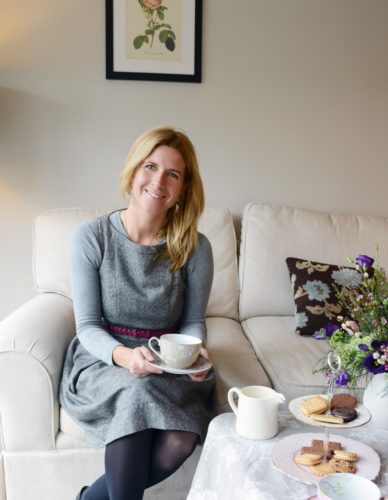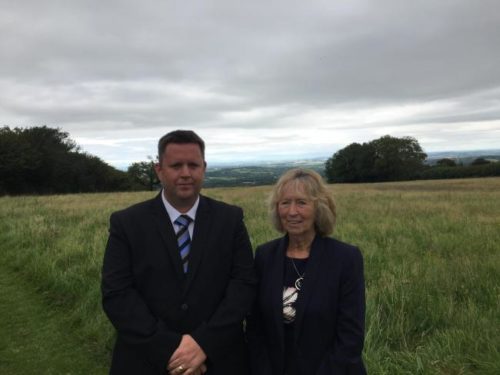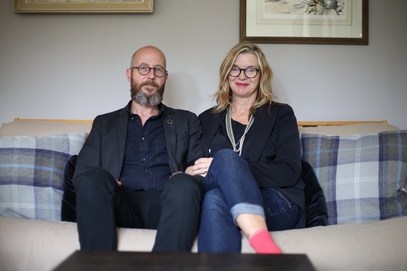Did you see this article in Monday’s Times?
‘Restaurant style ratings to combat funeral rip-offs’, the headline screams.
It’s behind a paywall, but we can precis it for you. Here’s a direct quote:
“Funeral directors are to be given restaurant-style ratings as the industry battles accusations of over-charging and inconsistent standards.
Classifications based on clarity of prices, conduct of funerals, vehicles and staff training, and mortuary and refrigeration facilities will be issued to thousands of funeral parlours based on inspections of their premises.
Those given the lowest ratings are likely to be ‘reported to their local authority for investigation under consumer protection law.”
The Times article references the new group appointed by the industry to address inconsistency in standards and the lack of transparency in fees, which, it states, is going to produce ratings that funeral directors would have to display in their premises and on their websites, similar to those issues by the Food Standards Agency for restaurants, hotels, supermarkets and care homes.
“Its chairman Lewis Shand Smith, former head of the dispute resolution body Ombudsman Services, told The Times it wanted a tougher code for practices such as collection of the body, care of the deceased and conduct of funerals. It also plans a charter mark system and common inspection regime for the sector in England.
“There is an awareness growing that standards may not be the same across the industry,” Mr Shand Smith said. “The industry itself is concerned that the few can bring the whole industry into disrepute and it is time to correct that.”
It’s unfortunate that the first main press coverage of the work of the FSCSR appears to have got its facts almost completely wrong.
Yesterday, an e-mail was sent out by the FSCSR Secretariat to those involved in the various working and steering and reference groups.
It said: “The article states that the FSCSR will “produce ratings that funeral directors would have to display in their premises and on their websites, similar to those issues by the Food Standards Agency for restaurants, hotels, supermarkets and care homes”. This is not entirely accurate.
“To be clear, no decisions about final project outcomes have yet been made. The possibility of recommending a ratings system may well be discussed by Working group B (the transparency working group) when it meets for the first time on 2 September but nothing has yet been discussed or agreed by any FSCSR working group or committee.”
Who is this FSCSR, we hear you ask? The Funeral Service Consumer Standards Review? Who are these people? And how can they have had such a catastrophic first introduction to the public?
Readers of the Funeral Director trade magazine will have had a sneak preview of the FSCSR last month. And they have a website, which you can find here.
Names of those on the FSCSR Steering Committee and the FSCSR Working Group A are listed, although, ironically, the members of Working Group B, tasked with looking at transparency, are not yet in the public domain. This is apparently because of GDPR.
You can read all about the group in their ‘Background Document’. The timetable looks like everything has happened in just the last couple of months, although we understand conference calls and work have been underway since January this year.
Oh, and as yet, no correction to the Times article appears on the new FSCSR website, even though they have a News tab. We’re sure it will, if the facts are so wrong.
Anyway, back to Mr Shand Smith, the independent chair of the FSCSR.
He appeared on BBC Radio Kent earlier yesterday, not exactly refuting the McDonalds’ style star system idea – listen here from 1:47.
When asked about the star system, he said, “I know the suggestion has been made, and the organisation that I’m kind of leading at the moment, we are looking at various ways of making the standards transparent to the public… these discussions are at a very early stage.”
And about the FSCSR: “They started this at the end of last year, they came together and recognised that there was a need, and the industry itself was raising questions about how it could do things better, and so they got together in December and decided to carry out an inquiry that would lead to a number of recommendations. And it’s widespread, it’s the two main trade associations, but a lot of independents as well, people who have an interest in the industry.”
OK, let’s clear up a few things here.
The FSCSR came into being as a direct result of an initiative by Dignity PLC, who are super keen on being seen as good guys by the CMA. (And by their shareholders too probably, given that the share price has now sunk below £5, somewhat of a drop from the 2016 high of £28.71. Luckily, Dignity directors sold £15 million worth of shares before the slump began – see our blog post here )
The inaugural roundtable meeting at Westminster last December was organised and funded by Dignity, as referenced in the Chief Executive’s statement on page 18 of their Annual Report and Accounts 2018: “We therefore continue to lead the call for change as we seek a regulated market that will be good for clients and society. Dignity is working collaboratively with industry partners and other stakeholders to improve standards across the sector. At the end of 2018 we initiated a round table discussion and invited the CMA and other representatives from the funeral sector, co-operating together to try and find a solution.”
And far from there being a ‘lot of independents’ involved with the FSCSR, as cited by Mr Shand Smith yesterday on the radio, there are just two independent funeral directors, both invited by a phone call from a representative from Dignity at the last minute before the December meeting, when it was suddenly realised that no unaffiliated independent funeral directors had been asked to participate.
We have been assured by the one of the NAFD representatives on the FSCSR that ‘all Steering Committee and working group members were appointed independently, either by Lewis (in respect of Steering Committee members), the Steering Committee and the Working Group Chair, Natalie McKail’, and that ‘both FSCSR Chairs are completely independent and that all participants appear to have come to this project with the right intentions.’
This is good to know.
We know that both of the independent funeral directors invited to take part in the work of the FSCSR have done so with the absolute best of intentions, and with the hope of positively influencing the work under way. They have also both made it very clear to the FSCSR that they represent only themselves, and not any other independent funeral business.
And we also know that both independent funeral directors called strongly from the start for the both Good Funeral Guide and the Natural Death Centre charity to be included in the discussions.
One would have thought that inviting the two organisations that actively work on behalf of bereaved people to inform a group brought together to look at things from the perspective of ‘funeral consumers’ would have been a bit of a no-brainer.
But no invitation was forthcoming.
The independent funeral directors continued to press the case for the GFG and the NDC during calls and by e-mail over the next seven months We know this because we stayed in contact with them.
We waited. And waited. But we heard nothing.
Then, on August 1st, an e-mail arrived from someone at the NAFD, with an attached letter written on behalf of Mr Shand Smith. We had been invited to the party at last.
We were asked to take a place on the FSCSR Stakeholder Reference Group, (the SRG) with the task of ‘informing, guiding and underpinning’ the work of the FSCSR.
We had a think about it, and then we politely declined, observing that ‘For the Good Funeral Guide to have been invited at this late stage to sit on a ‘Stakeholder Reference Group’ with a stated purpose of informing, guiding and underpinning work which has been underway for months can only be an afterthought. We would expect that ‘informing, guiding and underpinning’ a project would be a requirement from the start.’
We also pointed out, “The issues under scrutiny by the CMA have arisen entirely due to poor practice within the funeral sector, and we consider it is the sole responsibility of those party to the poor practice to attempt to redress this.
The Good Funeral Guide has been wholly critical of poor practice and lack of transparency in the funeral industry for many, many years, and we see no merit in our being involved in the sector’s attempts to pre-empt any recommendations in the CMA’s Final Decision report expected next year.”
In a comprehensive e-mail response received yesterday from the Secretariat of the FSCSR, we were advised that the door was still open for us should we change our minds, and that “the fact that GFG was not approached to sit on a working group does not mean that your opinion isn’t valued by the project… Those making working group appointments simply had to make decisions about who would bring most value to the groups based on the information available to them.”
And
“I do hope you will take us up on this offer. It would be really good to have the benefit of your experience and perspective on the SRG.”
We appreciate the appeal to re-consider, and assurance of independence and lack of pressure or influence, and that there was “no intention of claiming that SRG members have somehow endorsed the FSCSR project. In the spirit of transparency, we simply want to list the names on the FSCSR website as consulted parties. We would also be happy to openly publish, unedited, any written GFG response to FSCSR documents on the FSCSR website.”
But, our decision stands.
There are plenty of people already working on this. We are content to wait and see what they come up with.
Also, the FSCSR budget appears to be limited – for the work involved at least. We’ve been told more than once that “this is a project with a limited budget and a very ambitious timeframe.” In fact, this was given as the reason for not involving the GFG from the outset.
Despite the group being “funded by the funeral industry through the NAFD, with additional financial support from Golden Charter, Funeral Zone and Ecclesiastical Planning Services.”
One would have thought that for such apparently imperative cross sector working, adequate funding would have been found from the organisations involved. It can’t be costing that much to have a few meetings and create a website.
Oddly, the Times on Monday wrote about the “£2 billion-a-year funeral industry” and noted that “the industry has agreed to spend millions of pounds to publicise the charter marks and ratings system for funeral directors who signup.”
Millions of pounds to publicise something that’s been put together on a limited budget with a very ambitious timeframe?
Perhaps they got that all wrong too.





